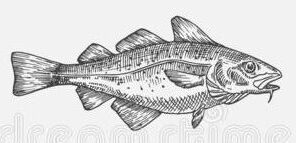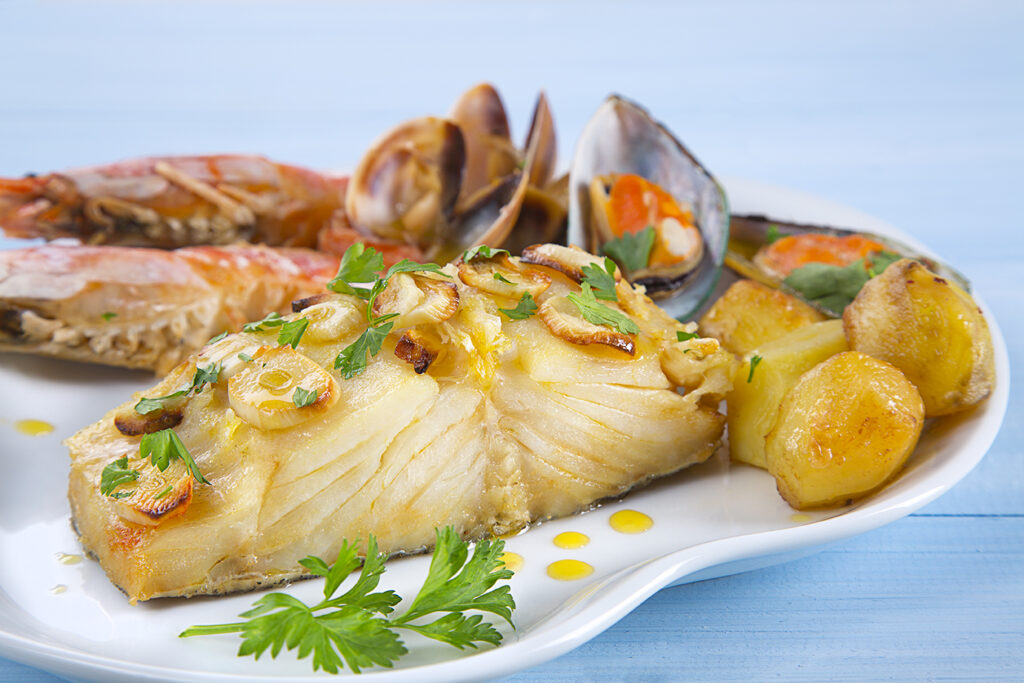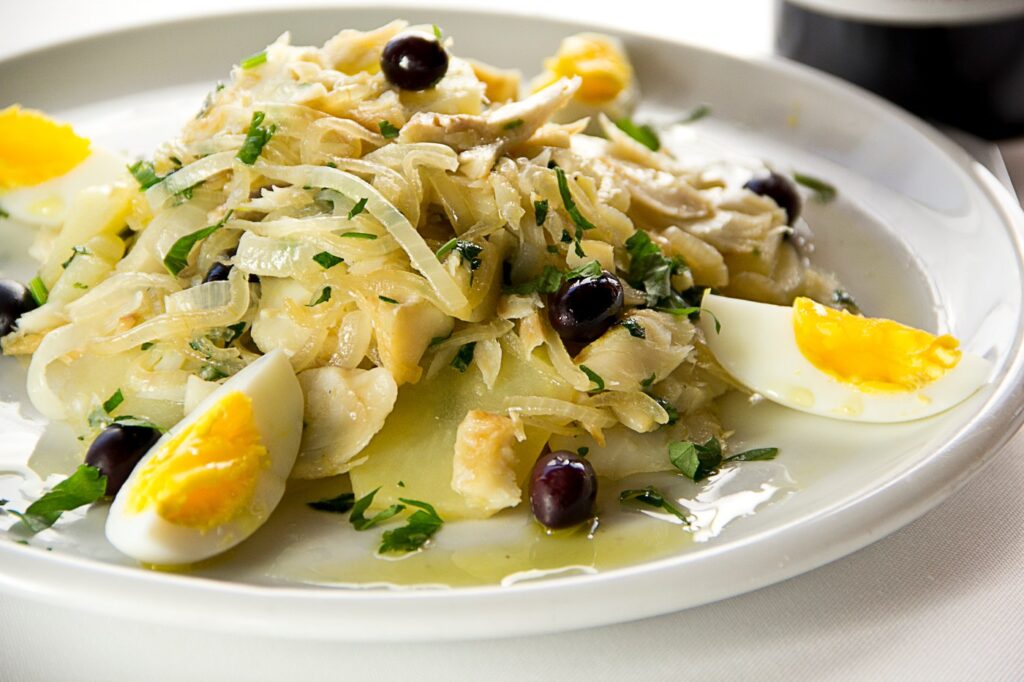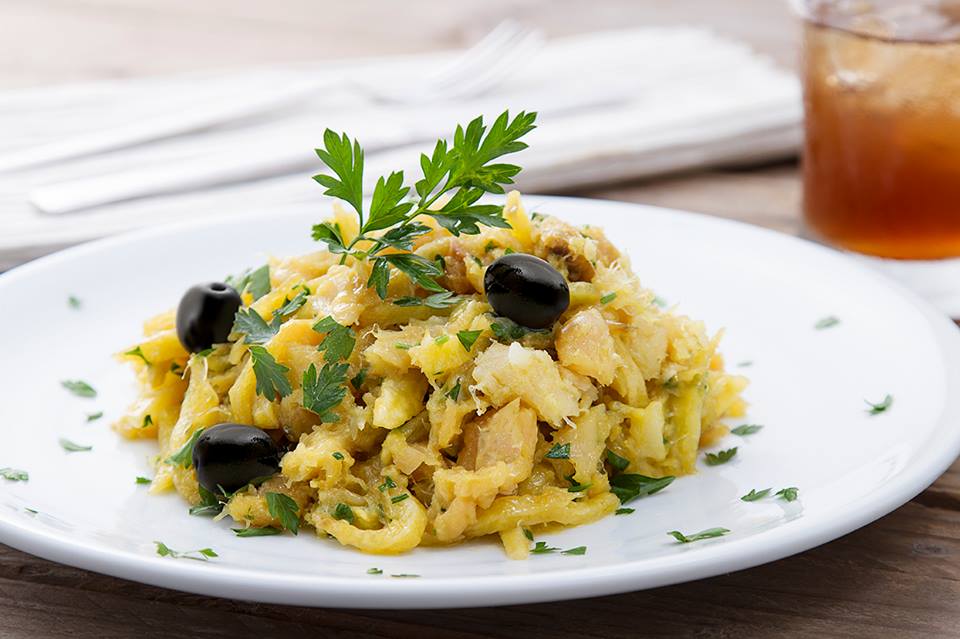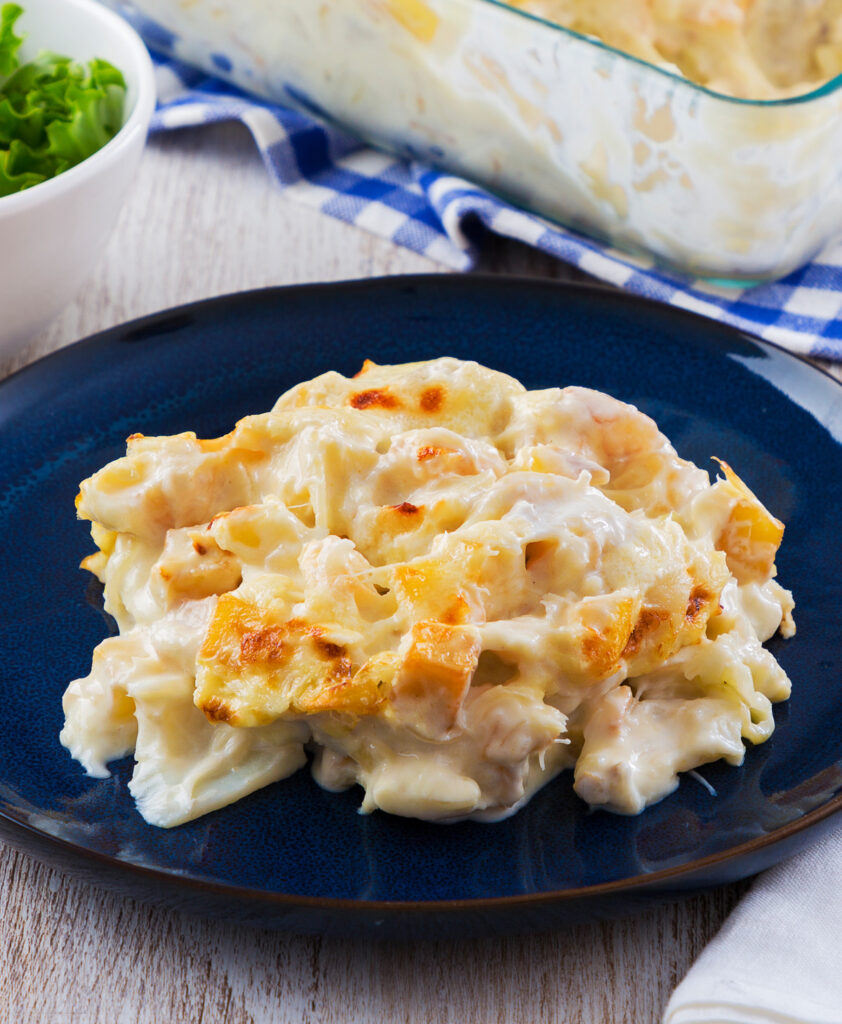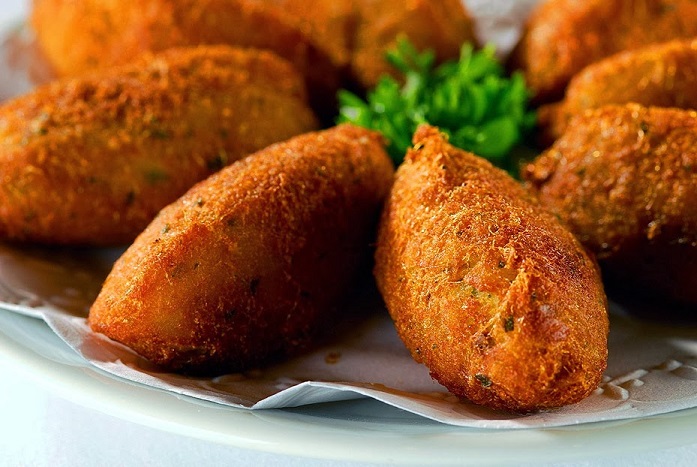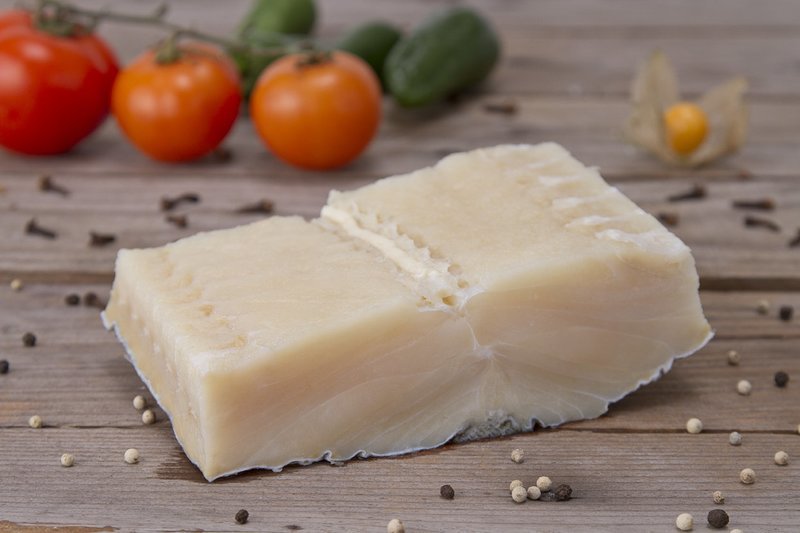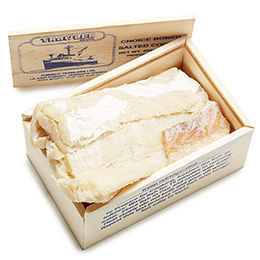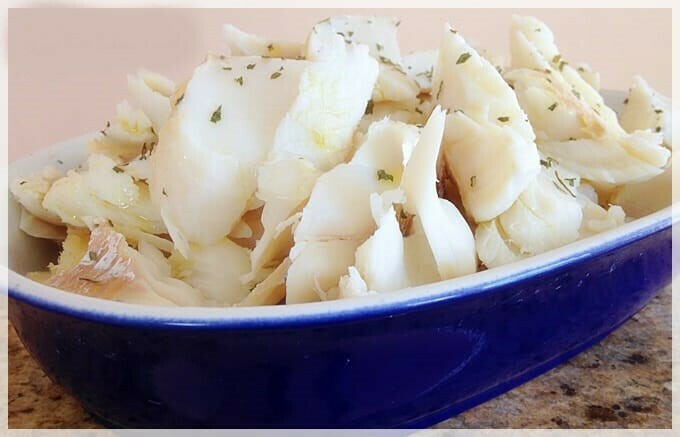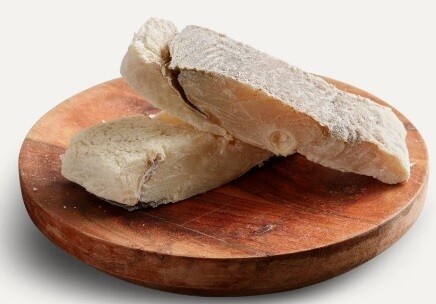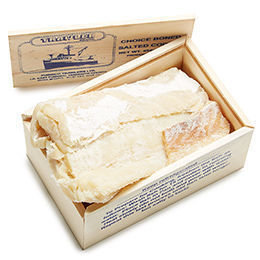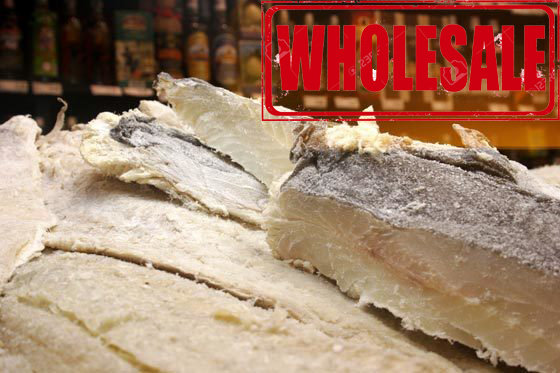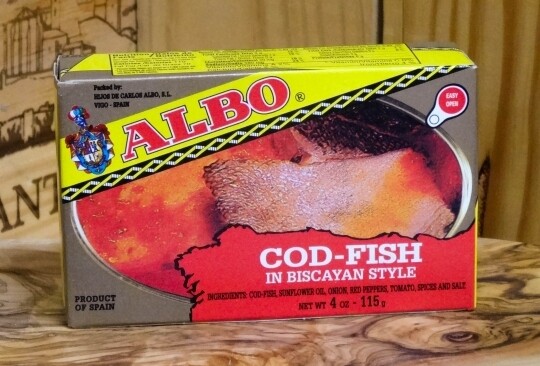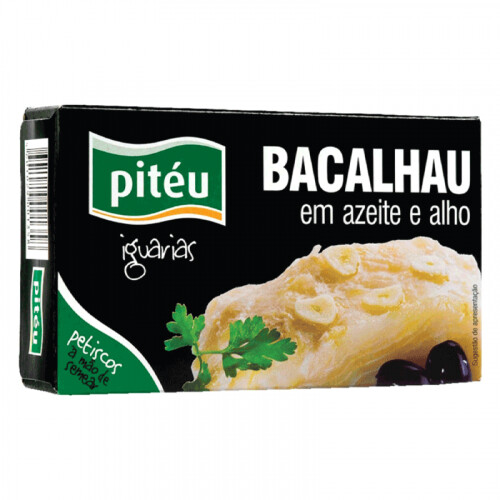To enjoy this magnicicent fish it is intimidating for some or atleast at first but after a few times actually very easy to prepare with certainty therafter.
The steps include –
- Choosing good fish
- Using Boneless Skinless or with skin and bone
- Desalting & Rehydrating
- Then there are literally thosands of ways to enjoy it….
Salt Cod
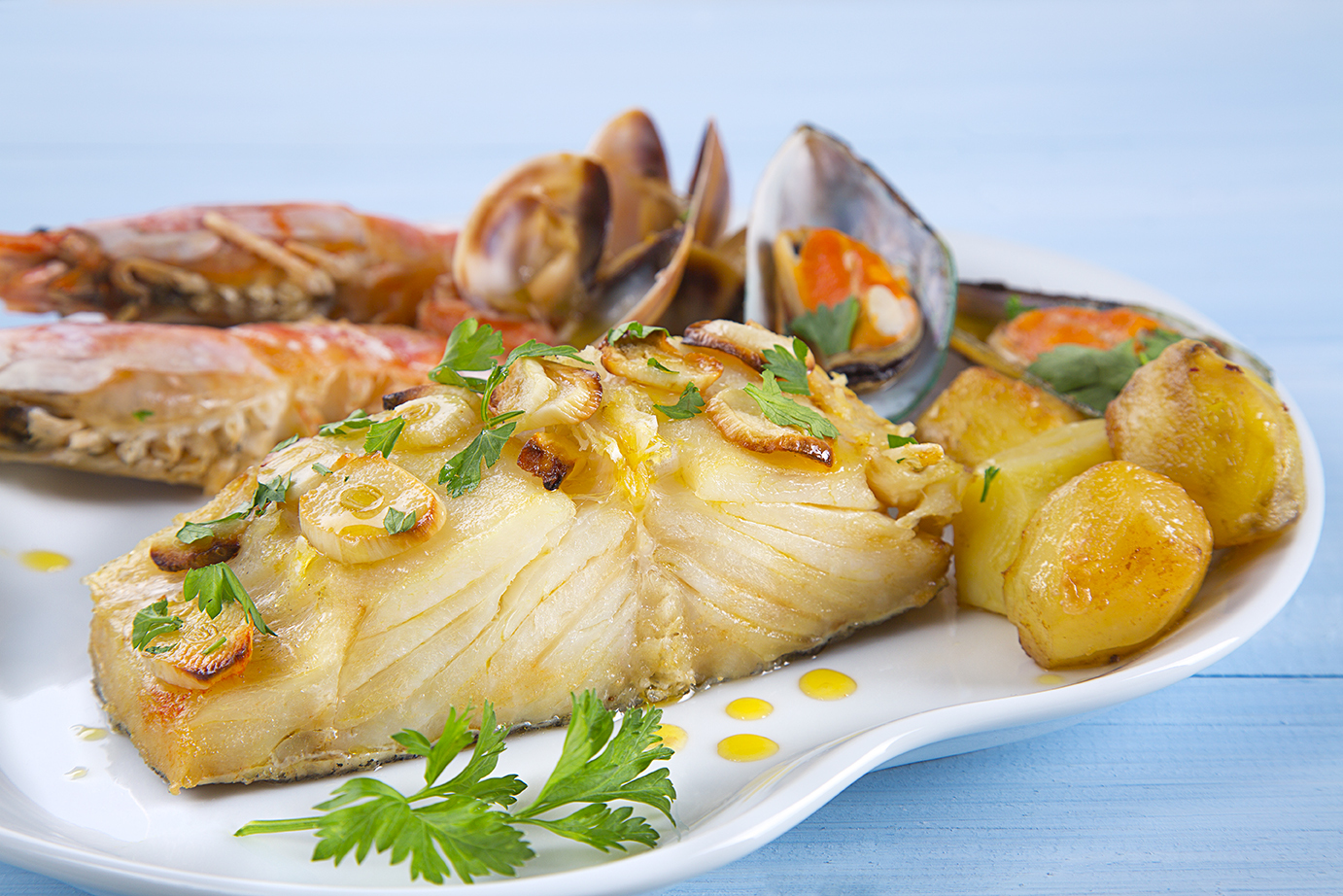 |
This item developed and consumed since the time of long ocean crossings. Portuguese mariners and explorers were sustained by salted cod which provided preserved sustenance on the long sea trips around the world. It is now a delicacy and popular throughout the world from Europe to Central and South America and the Caribbean.
There are thousands of recipes for preparing this salted delicacy from boiled, to grilled, baked, and fried.
Visit our web site and read our “I Love Bacalhau” newsletter for explanations, tips and recipes for Bacalhau.
Sign up for our newsletter here. |
